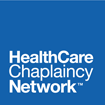
The Corporate Chaplain Division of the Spiritual Care Association supports the advancement of spiritual care in the workplace. It has established academic and professional criteria for the practice of this specialized chaplaincy professional. These standards help to ensure that skilled, effective chaplains and every person providing spiritual care, counseling and consultation in workplace settings meet the professional standards.
SCA established the Corporate Division to welcome corporate chaplains.
What is a Corporate Chaplain?
A corporate chaplain provides spiritually based care to persons in the context of their employment, respecting the diversity of the workforce being served. They respond to individual and family needs, as well as work life concerns such as job stress, coworker relations and career direction. They also provide consultation to management about issues affecting employee and company well-being, including organizational change, ethical challenges, conflict resolution, team development and outplacement. Corporate chaplains are called upon to lead first responder teams in the event of critical incidents affecting the workplace. Corporate chaplains are highly trained in the services they provide, whether this takes place on the corporate premises or externally at a chaplaincy provider center.
Membership Benefits
Members of SCA’s Corporate Chaplain receive all the same membership benefits as other professional SCA memberships. To review a list of SCA member benefits, click here.
How to Join?
To become a member, click the “Join now” button below. During the registration process, select the “Professional – Corporate Chaplain” to be added to the Corporate Chaplain Division of SCA.
Preamble
As members of the Corporate Chaplain Division of SCA, we are to demonstrate the highest standards of conduct in all our ministerial and personal relationships. The vows subscribed to in ordination or through sacred vows should be foundational for all personal morality.
As members, we are committed to the various theologies, traditions and values of our faith communities, and to the dignity and worth of each individual. We are dedicated to advancing the welfare of those who seek our assistance and to the maintenance of high standards of professional conduct and competence.
We are accountable for our ministry whatever its setting. This accountability is expressed in relationships to clients, colleagues, our faith communities and through the acceptance and practice of this Code of Ethics.
Professional Development
Corporate chaplains will work to attain the appropriate theological and pastoral skills training and credentialing in keeping with the current standards of practice for professional chaplaincy. Chaplains will remain up to date on new developments in the field through both educational activities and practical experience. We agree to continue our educational and professional growth through supervision, consultation and active participation in the meetings and affairs of the Institute.
Confidentiality
Chaplains will respect the integrity and protect the privacy and welfare of persons or groups with whom we provide pastoral care. We will safeguard information we have obtained through pastoral care relationships.
- All records kept will be stored or disposed of in a manner that assures security and confidentiality.
- We do not disclose client confidences to anyone, except: as mandated by law; to prevent a clear and immediate danger to someone; in the course of civil, criminal or disciplinary action arising from the pastoral care where the chaplain is a defendant; for purposes of supervision or consultation but only then with written permission.
- We do not use these standards of confidentiality to avoid intervention when it is necessary, e.g., when there is evidence of abuse of minors, the elderly, the disabled, the physically or mentally incompetent.
- When we refer to people in a publication, while teaching, or in a public presentation, their identity is thoroughly disguised, and written permission is obtained from the person.
Pastoral Relationships
- We show sensitivity for the moral, cultural, social and religious standards of people with whom we have a pastoral care relationship. We avoid imposing our beliefs on others, although we may express them when appropriate, especially when invited to do so.
- We recognize the trust placed in and the unique power of the pastoral care relationship. We avoid exploiting the trust and reliance of our clients. We avoid dual relationships which would impair our professional judgment or use the relationship for our own gain.
All forms of sexual behavior or harassment with our clients are unethical, even though they might invite or consent to such behavior or involvement. Sexual behavior is defined as, but not limited to, all forms of overt or covert seductive speech, gestures, and behavior as well as physical contact of a sexual nature. Harassment is defined as, but not limited to, repeated comments, gestures or physical contacts of a sexual nature.
Faith Group Relationships
Chaplains will maintain a vital relationship with the faith group in which they have ecclesiastical endorsement.
Professional Representation
Chaplains will not misrepresent their credentials and qualifications, nor in any other way mislead others about their ability to deliver pastoral care services. Informational and promotional literature is to the highest standards of professional representation.
Chaplains will maintain polite and collaborative relationships with other care-giving professionals and with public licensing/certifying bodies. Where appropriate, chaplains will obtain and maintain in good standing the necessary publicly recognized credentials for provision of services.
Failure to live up to the Code of Ethics may be grounds of loss of membership.
Questions?

If you have questions or comments, please contact The Rev. George F. Handzo, APBCC, CSSBB at ghandzo@spiritualcareassociation.org.

